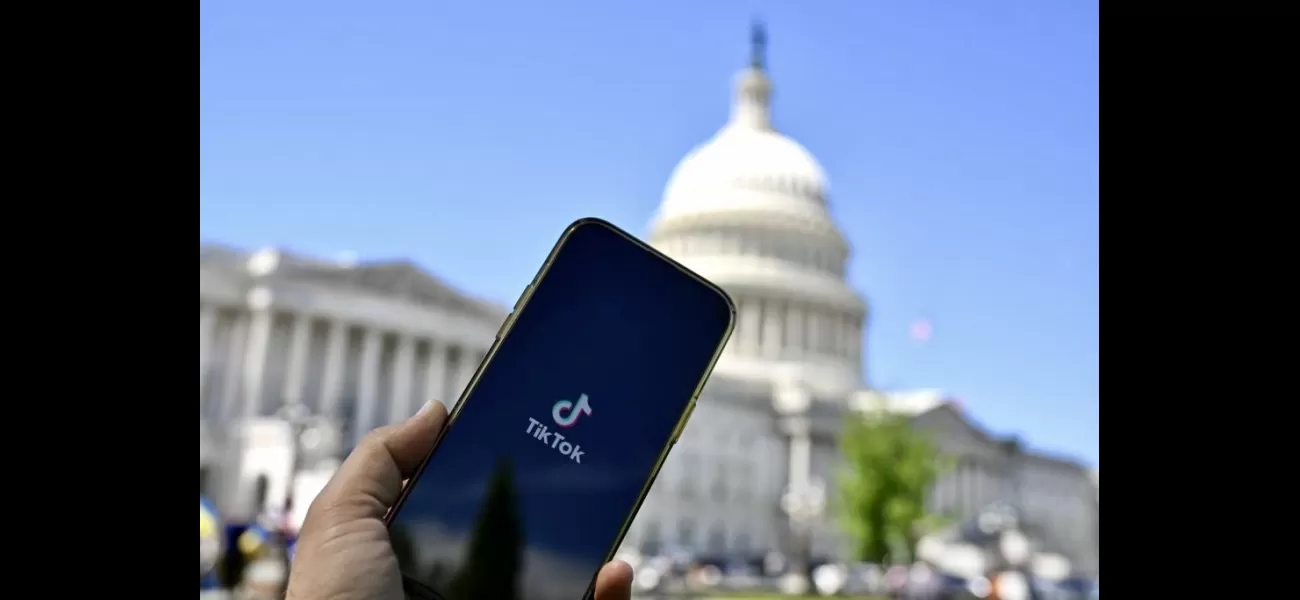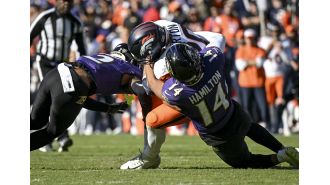TikTok is taking legal action against the U.S. government for infringing on their First Amendment rights.
TikTok needs Beijing's approval for a potential sale.
May 8th 2024.

TikTok, the popular social media app, is facing a potential ban in the United States due to a bill that has been proposed. In response, the company has filed a lawsuit arguing that the ban would violate the First Amendment of the U.S. Constitution. The bill, known as the Protecting Americans from Foreign Adversary Controlled Applications Act, has caused concern for the app's Chinese owner, who has been pressured to sell or face a ban.
The lawsuit, filed on May 7th in the U.S. Circuit Court of Appeals, states that the bill is an "unprecedented violation" of free speech rights. It claims that Congress has never before enacted a law that would permanently ban a specific social media platform and prevent Americans from participating in a community with over 1 billion users worldwide.
Furthermore, the lawsuit argues that national security concerns are not a valid reason to restrict free speech. It is up to Congress to prove otherwise, and so far they have not been able to do so. The bill, which was signed by President Joe Biden as part of a larger foreign aid package, marks the first time the U.S. has singled out a social media company for a potential ban. This has surprised and concerned free speech advocates, who typically associate such actions with foreign governments like Iran and China.
The lawsuit is expected to prolong the timeline for a potential ban or sale of the app. The owner of TikTok, ByteDance, has already had more than a year to make a decision, but legal proceedings will add additional time to that timeline. This means it could be years before a ban is enforced.
Selling the app is a complex process, and if a sale is already in progress, ByteDance would have an additional three months to complete it. However, the company has stated that they have no plans to sell TikTok. If this were to change, the Chinese government would need to give their permission, as Beijing is the capital of China and the home of ByteDance.
While the Justice Department has declined to comment on the lawsuit, John Moolenaar, chairman of the House Select Committee on the Chinese Communist Party, released a statement expressing concern over TikTok's potential threat to national security. He believes that the bipartisan legislation passed by Congress and the Executive Branch has concluded that TikTok poses a serious risk to the American people. He also notes that it is concerning that the company would choose to fight in court instead of addressing the issue by breaking ties with the Chinese Communist Party.
Both Republican and Democratic lawmakers have raised concerns about TikTok's data collection practices and security measures, as well as the app's algorithm for recommending videos to users. However, the Chinese government has made it clear that they will not allow the parent company to include the algorithm that has been key to the app's success in the United States.
Security experts have examined the allegations against TikTok and have found that the U.S. may be at fault for lacking data security laws. They argue that TikTok is no different from other social media apps, such as Instagram and Facebook. The claims of the company manipulating public opinion have little evidence to support them.
Experts on the First Amendment, like Jameel Jaffer, the executive director of the Knight First Amendment Institute at Columbia University, believe that TikTok has a strong case in this lawsuit. He states that the First Amendment protects Americans' access to ideas, information, and media from abroad, unless there is a compelling reason to restrict it. However, there may be other factors at play, such as national security concerns, that could complicate the outcome of the lawsuit.
Gautam Hans, a law professor and associate director of the First Amendment Clinic at Cornell University, believes that the bipartisan nature of the bill may sway judges to defer to Congress's determination that TikTok poses a national security risk. However, without a clearer explanation of these risks, it is difficult to justify such an unprecedented law.
The lawsuit, filed on May 7th in the U.S. Circuit Court of Appeals, states that the bill is an "unprecedented violation" of free speech rights. It claims that Congress has never before enacted a law that would permanently ban a specific social media platform and prevent Americans from participating in a community with over 1 billion users worldwide.
Furthermore, the lawsuit argues that national security concerns are not a valid reason to restrict free speech. It is up to Congress to prove otherwise, and so far they have not been able to do so. The bill, which was signed by President Joe Biden as part of a larger foreign aid package, marks the first time the U.S. has singled out a social media company for a potential ban. This has surprised and concerned free speech advocates, who typically associate such actions with foreign governments like Iran and China.
The lawsuit is expected to prolong the timeline for a potential ban or sale of the app. The owner of TikTok, ByteDance, has already had more than a year to make a decision, but legal proceedings will add additional time to that timeline. This means it could be years before a ban is enforced.
Selling the app is a complex process, and if a sale is already in progress, ByteDance would have an additional three months to complete it. However, the company has stated that they have no plans to sell TikTok. If this were to change, the Chinese government would need to give their permission, as Beijing is the capital of China and the home of ByteDance.
While the Justice Department has declined to comment on the lawsuit, John Moolenaar, chairman of the House Select Committee on the Chinese Communist Party, released a statement expressing concern over TikTok's potential threat to national security. He believes that the bipartisan legislation passed by Congress and the Executive Branch has concluded that TikTok poses a serious risk to the American people. He also notes that it is concerning that the company would choose to fight in court instead of addressing the issue by breaking ties with the Chinese Communist Party.
Both Republican and Democratic lawmakers have raised concerns about TikTok's data collection practices and security measures, as well as the app's algorithm for recommending videos to users. However, the Chinese government has made it clear that they will not allow the parent company to include the algorithm that has been key to the app's success in the United States.
Security experts have examined the allegations against TikTok and have found that the U.S. may be at fault for lacking data security laws. They argue that TikTok is no different from other social media apps, such as Instagram and Facebook. The claims of the company manipulating public opinion have little evidence to support them.
Experts on the First Amendment, like Jameel Jaffer, the executive director of the Knight First Amendment Institute at Columbia University, believe that TikTok has a strong case in this lawsuit. He states that the First Amendment protects Americans' access to ideas, information, and media from abroad, unless there is a compelling reason to restrict it. However, there may be other factors at play, such as national security concerns, that could complicate the outcome of the lawsuit.
Gautam Hans, a law professor and associate director of the First Amendment Clinic at Cornell University, believes that the bipartisan nature of the bill may sway judges to defer to Congress's determination that TikTok poses a national security risk. However, without a clearer explanation of these risks, it is difficult to justify such an unprecedented law.
[This article has been trending online recently and has been generated with AI. Your feed is customized.]
[Generative AI is experimental.]
0
0
Submit Comment





